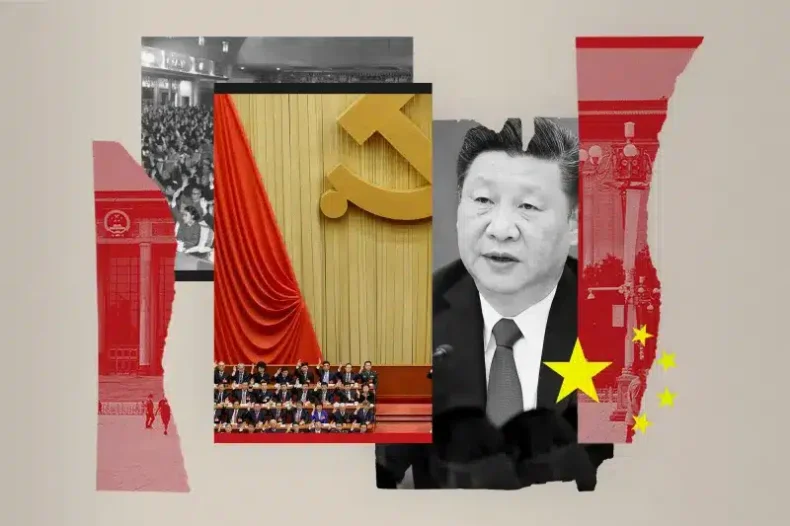The 20th national congress of the Chinese Communist Party is going to take place On Sunday 16th October. It happens every five years and usually lasts for several days. During that time announcements, resolutions and eventually, the revelation of the new standing committee is made. This is going to be one of the most significant meetings in the party’s history.

Xi Jinping, probably the most powerful Chinese leader since Mao Zedong in the 1970s is anticipated to be given a third 5-year term by the communist party which is now in control in China. It’s feasible that 69-year-old Mr Xi will hold onto power till the end of his days. He will be in charge of the second-largest economy and one of the most powerful armed forces in the world.
This event has grabbed the attention worldwide because China, a rich country with a powerful army, has begun to reshape the regional and global order. And the extensive political and policy trends in Beijing under Xi Jinping have been clear and there will be few surprises at the 20th Congress of the Chinese communist party.
What happens at a congress party?
According to James Palmer, a deputy editor at Foreign Policy, The 20th congress party is a choreographed dance. Where Barring a sudden disaster, anything that will play out at the Party Congress has already been decided. Even to make certain the representatives don’t cause any problems at the Party Congress, the final list is approved by a smaller committee chaired by Xi himself.
It is going to be long on ceremony, short on the debate, and one that rubber-stamps decisions made by a small group of leaders. The quinquennial congress of the Chinese Communist Party is drawing much global attention.

This year, the Party Congress is made up of some 3,000 delegates chosen from across the ranks of the party through a mix of rewards for good behaviour, closeness to existing leaders, and tokenism. This appointment is considered as much closer to receiving a knighthood in the United Kingdom than being a democratically elected representative.
here the delegates don’t vote on anything but instead rubber-stamp a list of previously agreed on decisions. The main work of the party is to approve the new list of central committee members of about 200 people plus 170 alternatives. These 200 people elect the 25 members of the Politburo, which subsequently selects the Standing Committee. The grinding formalities are an important part of the legitimacy of the Chinese communist party.
Is China moving in a totalitarian direction?
Many analysts believe that under the Xi regime China is witnessing the move toward the direction of a totalitarian regime where the decision of abolishing two-term limits which took place in 2018 has been considered a turning point in the political history of china.
And there are a few assumptions which are rising around the 3rd five-year term of Xi that he is likely to push China towards a more authoritarian political stance.
According to Professor Steve Tsang of London University’s School of Oriental and African Studies (SOAS) – China under Xi is moving in a totalitarian direction, China under Mao was a totalitarian system. We’re not there yet, but we’re moving in that direction.

Xi’s marks break from Deng’s approach
Xi has unwound the decentralization of decision-making in both economics and politics. Under the sends approach of decentralising economics from the control of the planning commission in being allowed individual farmers and industries decide on what they could produce in what quantities and then sell it in the marketplace.
This process led to the economic miracle of China. However, under xi’s decentralization approach, China’s rate of growth has slowed considerably.
China’s dream
China’s dream is something where China once again becomes the middle kingdom to which all others pay obeisance. Xi believes he is a man of history and under his regime of Xi, he is going to achieve China’s dream for which he is willing to take massive risks to achieve his objectives which previous leaders failed to achieve or were not willing to achieve.
In Xi’s vision, the idea of the end of history is the realisation of his china dream. And with the next third term, he will get more time to achieve the transformation of his country and the realisation of China.

What does Xi Jinping’s term bring for India.?
The fundamental values of India and China are completely different from each other and the interests of each nation will increasingly be dictated by their basic values. Hence Indian interests will conflict with Chinese interests and this is already playing out. That is the reason why Xi is wary of India and its progress, unfortunately, India-china tensions are set to increase.
India is monitoring the party congress carefully because it will contain important clues to the domestic and external policy. And it’s important to do that because this will provide the direction we may expect in the next several years.
The world is watching the congress party And there is no question of who is in charge, and it would be very unlikely for that to change after the 20th Party Congress. For the moment, it’s Xi with his image plastered all over China’s daily propaganda. The question is who falls beneath him and whether they have any real power to push their agendas, especially when it comes to fixing an increasingly shaky economy which had boomed in recent decades and other key challenges like political, diplomatic and environmental.












